This article is more than 5 years old.
Of the five Christmas books that Charles Dickens published in the 1840s, the first, A Christmas Carol (1843), is by far the most famous. The following year Dickens came out with The Chimes: A Goblin Story of Some Bells that Rang an Old Year Out and a New Year In.
Although the book sold well in 1844, it suffered the fate of many sequels in that it was criticized for being both similar to and different from its predecessor. In The Chimes Dickens once again takes up the cause of the underprivileged classes’ struggle for survival in a rapidly industrializing society. But The Chimes is a darker book than A Christmas Carol, its social criticisms more pointed and specific and its happy ending less certain.
Dickens’s protagonist is Toby Veck, a “ticket-porter” or messenger-for-hire who plies his trade on the steps of an old church, whose tower houses the Chimes of the title. Toby, his beautiful and virtuous daughter Meg, Meg’s fiance Richard, and Will Fern, an agricultural laborer newly arrived in the city, personify the struggles of the urban poor. On New Year’s Eve they suffer unpleasant encounters with a Member of Parliament, an Alderman, and a rich young gentleman. And Toby is further discouraged by newspaper depictions of the lower classes as inevitably prone to evil. When Toby reads an account (based on a notorious true story) of a desperate young woman who drowned herself and her illegitimate child, he succumbs to cynicism and despair: “None but people who were bad at heart: born bad: who had no business on the earth could do such deeds. It’s too true, all I’ve heard to-day; too just, too full of proof. We’re Bad!”
Toby then hears the Chimes in the church tower calling his name. He finds the bell tower “swarming with dwarf phantoms,spirits, elfin creatures of the Bells.” The Goblin of the Great Bell tells Toby that “Who turns his back upon the fallen and disfigured of his kind; abandons them as Vile; and does not trace and track with pitying eyes the unfenced precipice by which they fell from Good. . . does wrong to Heaven and Man, to Time and to Eternity.”
The Goblin informs Toby that he has died and shows him a vision of his daughter Meg’s unhappy future life. Through a combination of misfortune and malicious interference by the rich and powerful, Meg too is reduced to contemplating suicide with her infant child. Toby then understands that the unfortunate people he reads about in the papers are not bad by nature, but are driven to desperate acts by an uncaring world. The “spirit of the Chimes” has taught him that “we must trust and hope, and neither doubt ourselves, nor doubt the Good in one another.”
Toby then wakes in his own rooms to find Meg and Richard happily planning their wedding for the next day. A crowd of jolly neighbors soon join them to celebrate the new year and the upcoming nuptials, and one of the revelers proves to be a long-lost friend for whom Will Fern was searching.
Dickens leaves his readers with an admonition to “bear in mind the stern realities from which these shadows come; and in your sphere. . . endeavor to correct, improve, and soften them. . . . So may each Year be happier than the last, and not the meanest of our brethren or sisterhood debarred their rightful share, in what our Great Creator formed them to enjoy.”
ZSR Library’s copy of The Chimes is a first edition published by Chapman and Hall in 1844. It was purchased by the library in 1970.

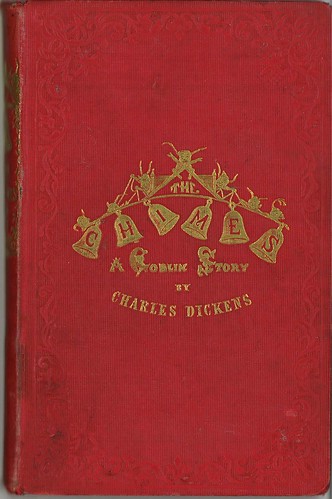
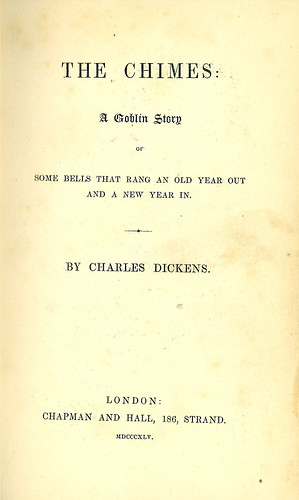
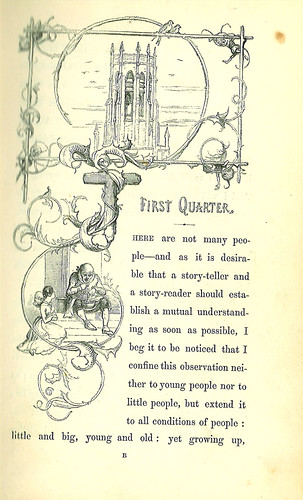
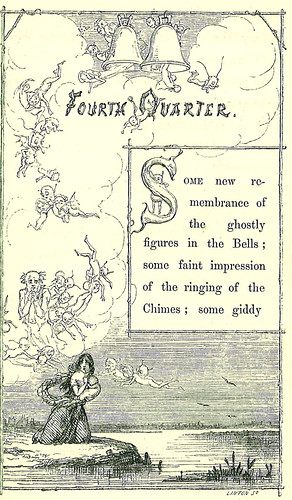
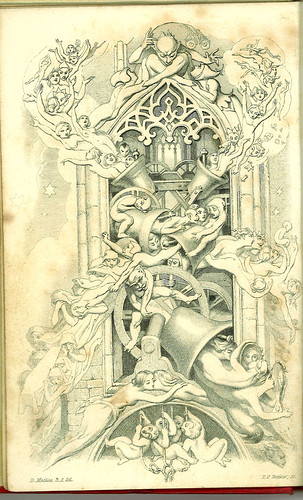
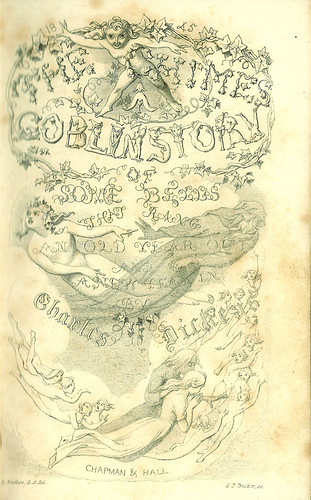
2 Comments on ‘Rare Book of the Month: The Chimes: A Goblin Story, by Charles Dickens’
Wow! Thanks Megan, I really enjoyed reading this entry.
I recently found a pocket novel of “The Chimes” by Charles Dickens, it is a small version in a red suede cover and it was a gift to a old relative that recieved it from a friend or relative from London England , it also has a ticket stub inside which I don’t know has a significance or not to the book, I was just wondering what the value of this little treasure would be as we are collecting all items and would like to sell what we can to purchase a larger cemetery head stone for he and his parents as they are all deceased now. thank you